5. Poetry (Lee Chang-dong)
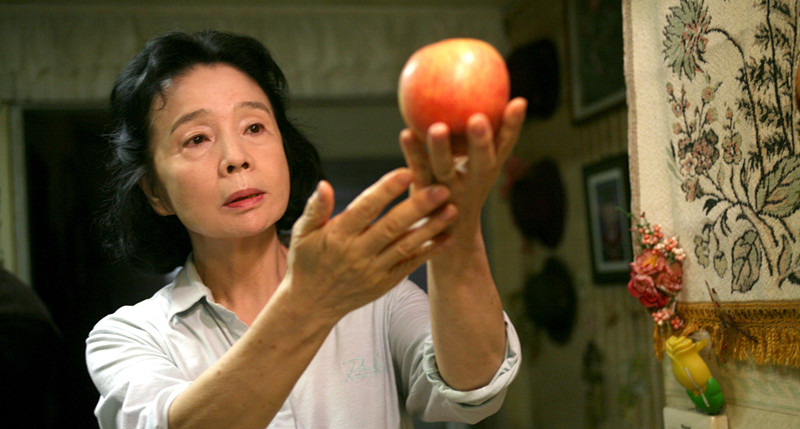
The Asian film industry has proven to be one of the finest providers of deeply touching pictures with masterpieces like 2000’s “In the Mood for Love“ by Wong Kar-wai. “Poetry“ plays in a similar league (the movie won the award for best screenplay at Cannes). In the narrative’s centre there’s Mija, a grandma with Alzheimer’s disease whose remaining will is to write a poem before the sickness wins over her senses.
The theme itself is a very touching one, but the combination of the protagonist and her accurate character gains even more emotionality. Living in a moderate apartment with her troubled grandson, she has to deal with her sense of self, her fading beauty, and the absence of her daughter.
The film isn’t obvious in terms of showing the protagonist’s feelings. After her diagnosis she just continues with her daily routine and the viewer isn’t aware of her emotional state. The only change is her attendance at a local poetry writing class. But with the diagnosis in mind, the viewer and the protagonist as well starts to look closer for hints into her fading memory.
4. Elle (Paul Verhoeven)
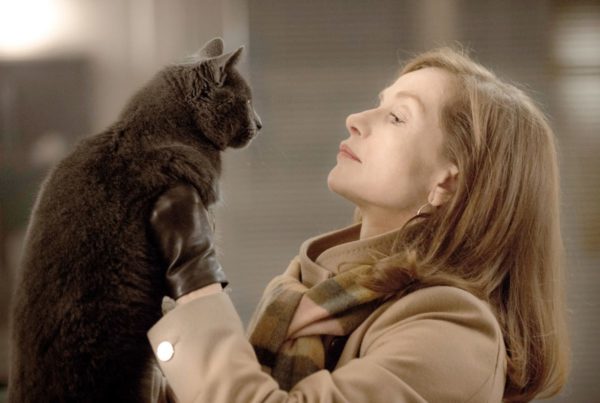
The year 2016 has been a huge year for French actress Isabelle Huppert. The main reason for that might be the “Elle,” highly acclaimed thriller by Paul Verhoeven. Nominated for nearly every noteworthy award, including a win at the Golden Globes, her performance as successful businesswomen Michèle Leblanc is truly mesmerizing.
After being brutally raped in her own apartment, her character covers the tracks instead of going to the police. While most dramatic rape thrillers reveal the criminal’s identity at the movie’s end, “Elle” surprises the audience with the revelation at the narrative’s midpoint. The second part of the movie focuses on a perverted psychosexual game between victim and perpetrator.
What’s so great about the movie is the way it presents the character’s nature. In scenes at her office or before her friend’s faces, the viewer gets hints of her sadistic and self-destroying personality. She lies to her circle of friends, has liaisons with her friend’s husband, and humiliates one of her employees. Her relationship with her mother is deeply troubled, as well as the one with her father, who committed a mass murder in her youth, robbing her at a chance of a normal life.
The film successfully transfers these backstory elements into the actual narrative of the movie and draws a picture of the influence of traumatic incidences on an individual’s sexual nature. During its 130-minute run time, the movie unfolds a greatly constructed character without drifting into clichéd areas or stereotypes.
3. American Psycho (Mary Harron)
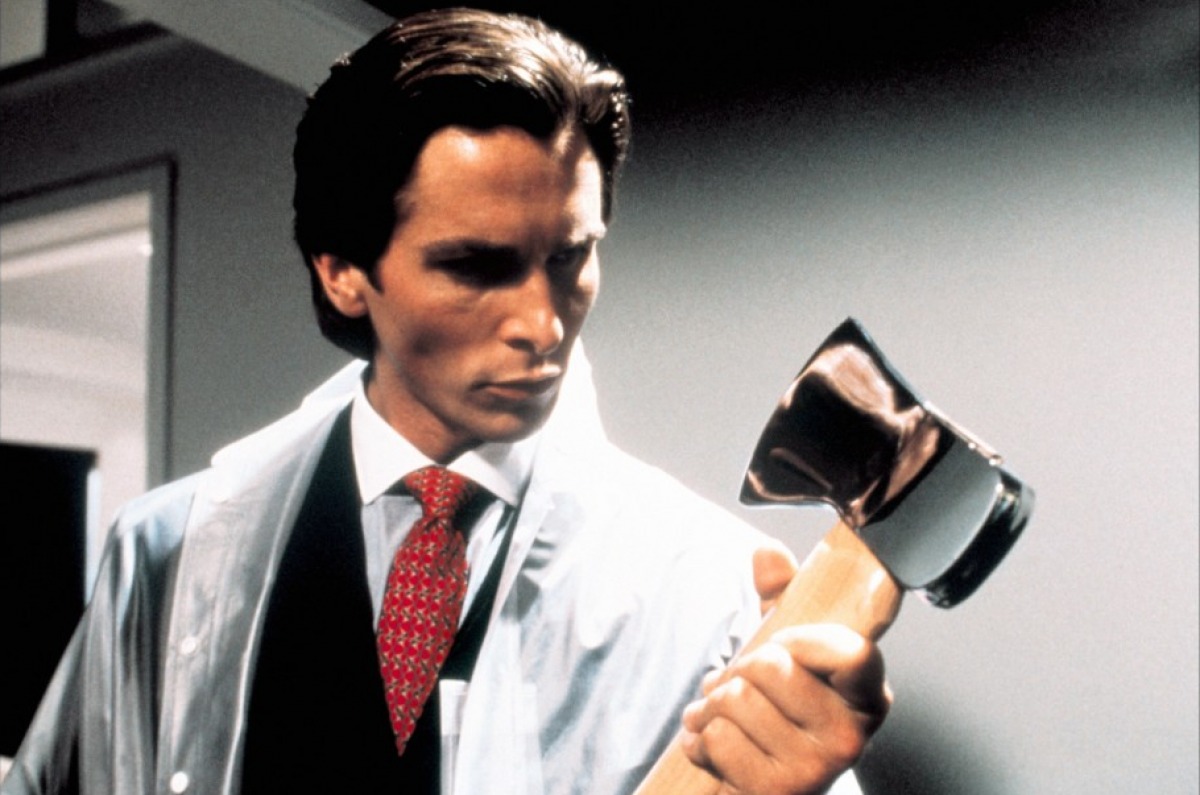
Based on the novel of the same name by Bret Easton Ellis, the protagonist of “American Psycho” might arguably be the biggest narcissist ever put on the big screen. Just think about the iconic introduction of Patrick Bateman’s morning routine and his self-obsession with his muscled body.
Even with its partly surreal style (the end in particular made people look for explanations in countless internet fora entries), the movie gives insight into the dysfunctional psyche of a true psychopath.
The protagonist’s environment – 1980’s Wall Street – is dominated by superficiality. In fact, all of the businessmen in the movie try to get a table at the trendy restaurant instead of working. They talk about suits and business cards but no word about interpersonal or human issues. In such a lifeless environment, a psychopath like Bateman has the perfect opportunities to keep up his masquerade and hide his evil nature.
The movie is full of brilliant scenes. Just think about the killing of Jared Leto’s character while Huey Lewis lilts his hit “Hip to Be Square.” While being one hell of an iconic scene, it tells much about Bateman’s character.
The way he recalls his “opinion” on Huey Lewis’ musical career and oeuvre doesn’t sound human, but like a memorized review out of a magazine. It perfectly shows his superficial nature and inability to have human enthusiasm. While studying Bateman’s face after the murder, one won’t find satisfaction, but rather an emotionless vacuum and the proof for his ultimate lack of empathy.
2. There Will Be Blood (Paul Thomas Anderson)
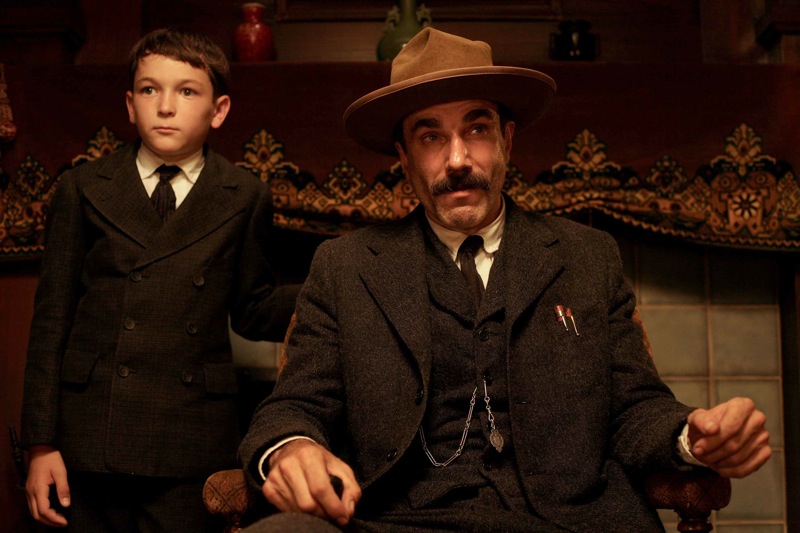
With the highly anticipated release of “Phantom Thread” in December, one might look back on the last collaboration between director Paul Thomas Anderson and actor Daniel Day-Lewis. “There Will Be Blood,” hailed by critics and audiences alike, had its 10th anniversary this year and could easily be described as one of the finest cinematic achievements of this century.
Despite its impressive cinematography, the glorious acting and the avant-garde score by Radiohead’s Jonny Greenwood, the movie is one of the most compelling character studies of recent years and gives insight in a sociopath’s mind that’s full of greed and embitterment, but also a warm heart’s shimmer.
But one wouldn’t do justice to the character of Daniel Plainview simply by calling him a sociopath. Of course, large parts of the movie work as proof for Plainview’s dysfunctional desire for money and his acceptance of sticking at nothing.
Nonetheless, the antihero has some good-hearted attributes (which are strongly needed in order to create empathy in the viewer’s mind, resulting in a strong audience-character bond). He is a hard worker, he pursues a goal with all his power, and he provides a home to a dead man’s son. The latter in particular shines a light on Plainview’s otherwise stone cold shell. But all of these features are permanently accompanied by the dark sides of these attributes. He doesn’t allow feelings to coexist beside his work.
People are just obstacles one has to overcome in order to achieve their goal, and as soon as the boy isn’t a commercial benefit, he bans him and returns to his void morale. Daniel Plainview is a man who damns himself to be lonely, unhappy and corroded by distrust for his entire life, all with his halls filled with money and opulence.
What separates the character of Daniel Plainview from the unclear ocean of cinematic heroes (and antiheroes)? We follow him over the course of several decades and are a part of his rise from a hard-working prospector to an oil tycoon and the subsequent fall after the Great Depression.
The audience understands the character’s complexity. But first of all – and here comes the point – Plainview manages to show us the nature of greed, animosity and enviousness just the way it is.
1. La Pianiste (Michael Haneke)
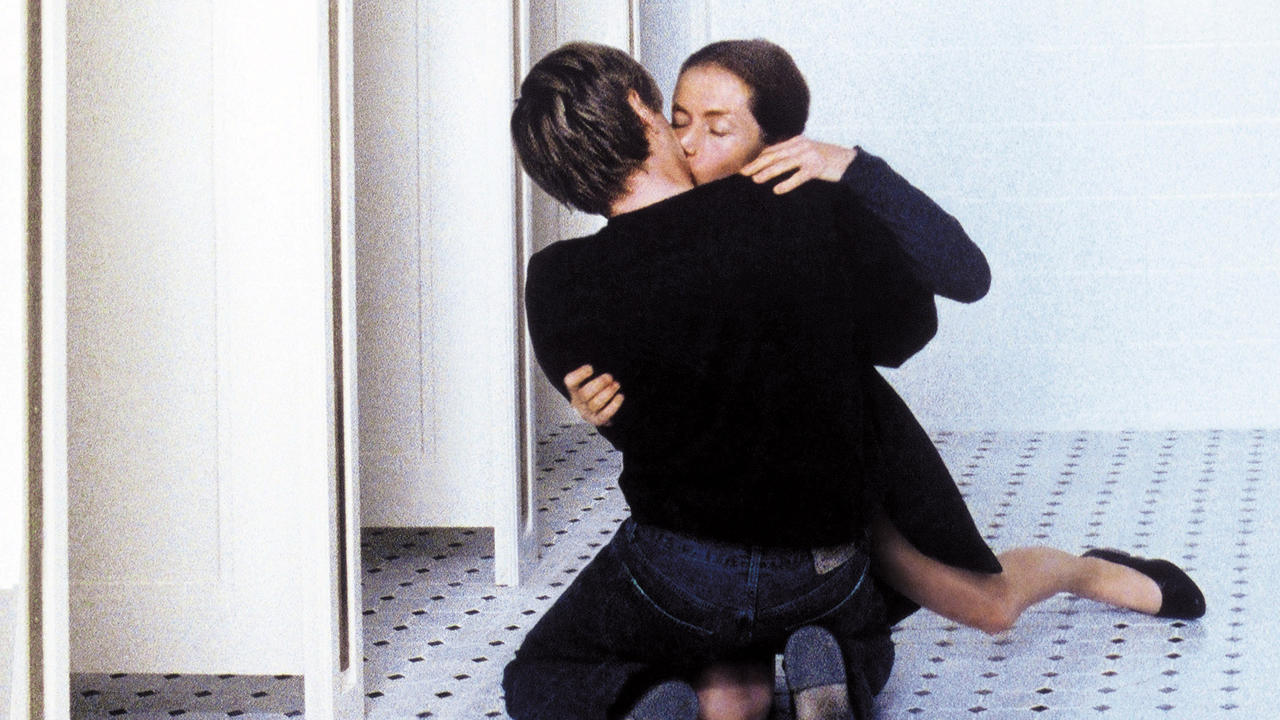
Michael Haneke is a polarizing director. Described as a placative “schoolmaster” or the consciousness of European cinema, as a willingly shocking or award-winning genius, most of his movies made critical voices hail him as saint and Judas alike.
In his movies, he dissects social problems with academic precision, with matter-of-fact coldness. Instead of an axe he uses a fine scalpel to examine representative character traits and set them in the context of society. His movies are far beyond the purpose of simple character studies, but work as critical case scenarios of social structures and a consumer society.
The way we consume violence as entertainment (“Funny Games”), the social memory and mechanisms of suppression (“Caché”), the predisposition for ideologies in situations of constant social pressure (“The White Ribbon”) and likewise, the pathological interdependency of men and women in “La Pianiste.”
All of his movies strongly focus on its characters, but his 2001 movie might be his most accurate and precise study of a character’s psyche. Based on the novel of the same name by Nobel Prize-winning writer Elfriede Jelinek, piano teacher Erika Kohut (a brilliantly reduced embodiment by Isabelle Huppert) is the study’s subject. She lives in a small apartment with her control-addicted mother, resulting in a highly dysfunctional mother-daughter relationship, emotional distortion, and different shapes of voyeurism.
During her work at the Viennese conservatory, young piano student Walter Klemmer starts to ask her out. Incapable of starting an emotional relationship, she forces a sadomasochistic game. While Klemmer is unable to cope at first, he starts to twist the roles in this perverted interplay.
In Haneke’s cinema of perversion, “La Pianiste” takes the role of a love story, as well as “Funny Games” works as a thriller, while undermining the genre’s conventions in every possible manner. In his functioning as a storyteller there’s no room for emotional excesses. It’s all about the facts, making “La Pianiste” a knife-sharp psychogram of the character’s mind.
Author Bio: Berlin-based Luc Hinrichsen has a bachelor’s degree in audio engineering and plenty of experience in scoring movies on his own, while working for a film distribution company. Besides that, he’s an aspiring screenwriter and director always curious about enlarging his knowledge about film and its history.